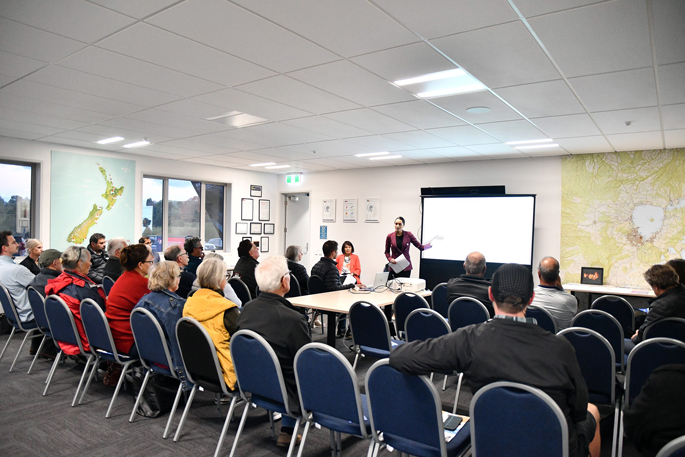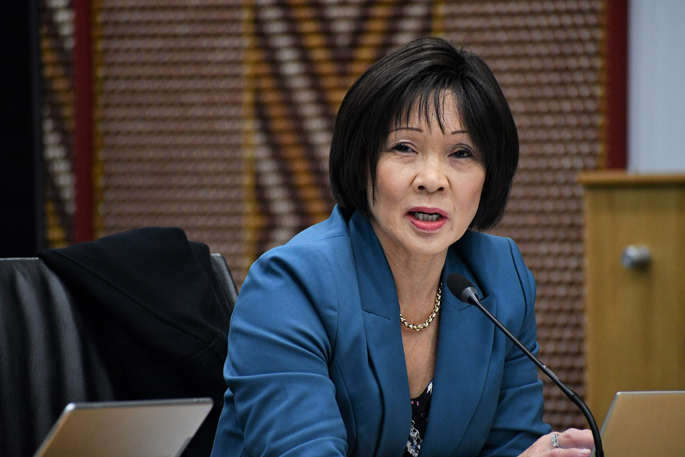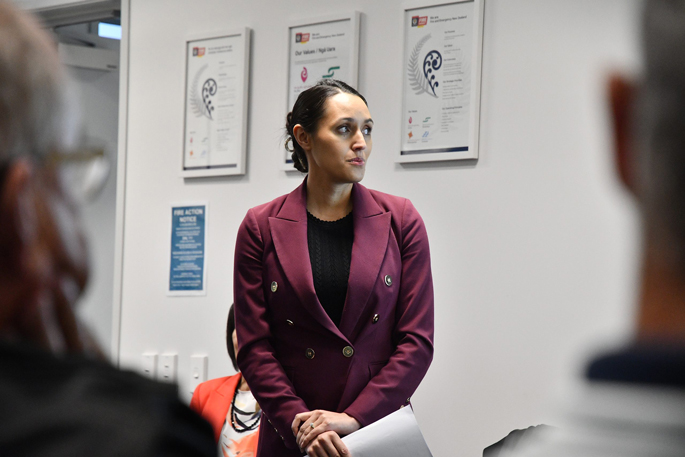Rotorua lakeside property owners have expressed concern about a rating change aimed at Airbnb-type accommodation providers, saying it will result in a “huge rates increase” for those affected.
The issue was raised at a community meeting at Lake Ōkāreka fire station on Monday to discuss the Rotorua Lakes Council’s draft Long-Term Plan.
The meeting was attended by seven councillors and five staff and about 15 members of the community.
Rotorua ratepayers are facing a potential average 10.24 per cent rates rise and some residents voiced concern this was on top of a proposed rating change for short-term accommodation and paying thousands of dollars to be connected to a new sewerage scheme.
Mayor Tania Tapsell told the meeting the council had looked at ways to to limit the overall rates rise while dealing with inflation and higher interest rates.
This included moving short-term accommodation providers, such as Airbnb hosts, to a commercial rate rather than residential rate under the draft plan if they advertised more than 60 guest nights in a financial year.
It would mean the properties would also pay a business and economic development targeted rate and the proposed change could generate an additional $900,000 a year for the council.
Council research found between 800 to 1000 properties could fall into this category in Rotorua and the draft plan stated this presented a “real issue” during a housing shortage and also put more demand on council services.
Tapsell said the council wanted to differentiate between those who offered rooms in their home to help cover mortgages on a casual basis from those offering more than 60 guest nights a year.
“We didn’t want to impact them too negatively.”
One man said he wanted to let the council know what the short-term accommodation rating change would mean for some.
“You realise that would be $6000 for a lot of people out here. It’s a huge, huge rates increase, he said.
“If you’re getting $200 a night, that’s 60 bed nights just to pay the [rate].”
He said there had to be a fairer way.
“If you’ve got a small Airbnb and suddenly your rates are double, it’s not worth it.
“You’re taking all the revenue.”
Another man asked if it had looked at a “bed tax” for tourists to pay directly for the facilities used. Auckland Council introduced one in 2017, which after some controversy was ruled valid by the Supreme Court last year and could be included in its Long-Term Plan this year.
“You are running a big business. There is a profit and a loss and someone’s got to make up for the loss and it shouldn’t be the ratepayer.”
Tapsell said he was “bang-on” with his feedback.
 Rotorua mayor Tania Tapsell. Photo / Laura Smith.
Rotorua mayor Tania Tapsell. Photo / Laura Smith.
In response to the comments on the short-term accommodation rating change proposed, she said it had been a difficult thing to balance.
Some did it casually while others at times collected “very significant profits” at a time it needed the houses in the market, Tapsell said.
She encouraged those impacted to make a submission.
Deputy mayor Sandra Kai Fong said there was a national discussion on a bed tax. The short-term accommodation rating change would not initially fund infrastructure but would fund tourism marketing.
She acknowledged it was “challenging times” but over the ten years, the rates rise averaged 5.5 per cent.
“It’s probably not much comfort, but it’s probably one of the lowest rate rises that’s been proposed around the country.”
“We’re not seeing a five-star service.”
Other concerns were around the level of service lakeside communities received.
One said Tarawera residents were paying “premium rates” but had “no real services”.
 Rotorua deputy mayor Sandra Kai Fong. Photo / Laura Smith.
Rotorua deputy mayor Sandra Kai Fong. Photo / Laura Smith.
Another asked: “How can you come here and say we need money for this, we need money for that,” when residents would soon need to pay for a sewerage scheme on top of their normal rates.
Tapsell said it was listening and was doing the best it could, including finding additional sources of income.
Lake Ōkāreka Community Association chairman Mitch Collins said the community was not seeing a five-star service from the council.
Collins was referring to a comment Tapsell made about reducing levels of service to cut costs, including in parks and reserves.
“This week we are spending $26,000 to clear cherry trees, pest trees, on council reserve land. After five years of asking, it is not a five-star service.”
Dog walkers cleared the beach every morning, he said, and community efforts and fundraising were subsiding council spend.
Consultation closes on May 6.
LDR is local body journalism co-funded by RNZ and NZ On Air.




0 comments
Leave a Comment
You must be logged in to make a comment.